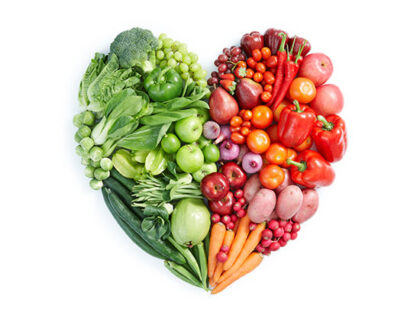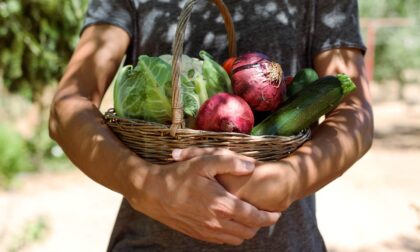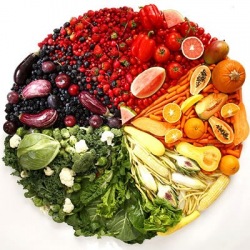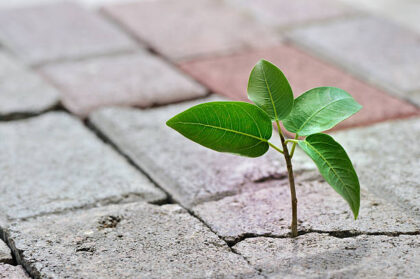
Description
Day/Time: Monday & Wednesday – 11:45-2:30 PM
Office Hours: By Request (Zoom meetings)
Classroom: Remote (on Zoom)
Is your diet sustainable?
Let’s redress the question, instead ask, what types of consequences (positive/negative, intended/unintended, that we are aware/unaware of) does your diet sustain?
Digging deeper, we can ask: What were the labour conditions of the farmers that produced your food? What are the ingredients in your food item and how does that contribute to your health? What is the carbon footprint of your food item? What social inequalities are expressed via your food consumption?
Food is more than just a biological need, it is also a way people interact with the biosphere, express culture and communicate about class/gender/race relations. Food is at the center of many serious social, political and economic issues. These issues include: starvation, obesity, eating disorders, malnutrition, climate change, pollution, biodiversity loss, inequality, colonization, and imperialism, among other topics.
In this course, students will read and discuss recent publications about food and sustainability and participate in improving the food system in Lachine, Montreal through campus-community food projects.
Students will focus on the political economy of food by examining how food is produced, transformed, distributed, consumed, and how food waste is managed in different areas of the world. They will take a critical perspective to analyze multinational food corporations, like Bayer, by looking at the consequences of large-scale industrialized farming, monoculture, and the privatization of genetics. These consequences include, the use of GMOs and the loss of biodiversity; reliance on fossil fuels and its contribution to climate change; use of glyphosate and the accompanying health effects; seed patents and loss of food sovereignty; use of natural resources and the depletion of water and food supplies; among others.
Students will explore what people are doing to prevent these negative consequences. They will examine the food sovereignty movements, like the work done by La Via Campesina. Students will also look at sustainable production, like seed saving, indigenous practices, permaculture, rooftop gardening, and organic farming. Students will learn about alternative food networks that are developing socially responsible, environmentally sustainable, just, and secure food practices.
This course employs the theories and methodologies of sociology and anthropology. Political economy is a paradigm in the tradition of Karl Marx. It draws our attention to the power structure (political, economic, and social) that governs the society and the counter-movements that challenge the existing power structure. The social economy perspective in the tradition of Karl Polanyi will be used to imagine post-capitalist alternatives. The capitalist system has experienced many crises, and the current crisis, both ecological and economic, provides a great opportunity for the transition to global futures that are egalitarian, inclusive, democratic, and sustainable. This course also employs the tradition of critical self-knowledge and auto-ethnography. Students are asked to examine their personal involvement in industrial food systems and alternative food systems as individuals and a collective.
An important focus of this course is enhancing local food systems through community engagement projects (community service learning). Students will participate with local food projects in Lachine and/or in their local communities. Students will get involved with a food organization in Lachine by interviewing a community food group and by volunteering for three hours with a local food project. This information will be used to improve the foodscape and develop a strong local food system in Lachine.
Course Materials and Text:
Students are expected to complete ALL the designated readings and watch ALL of the assigned videos BEFORE EACH CLASS. Students are also expected to attend ALL classes and participate in class discussions.
The required readings are available at the Concordia Library.
Koc, M., Sumner, J., & Winson, A. (2017) Critical Perspectives in Food Studies, Second Edition, Oxford University Press.
Barilla Center for Food and Nutrition, & Nierenberg, D., (2018) Nourished Planet: Sustainability in the Global Food System 3rd ed., Island Press.
Holt-Gimenez, E. (2017) A Foodie’s Guide to Capitalism: Understanding the Political Economy of What We Eat, Monthly Review Press, New York.
The power-point lecture notes will be posted on the course website before each class.
Recommended readings:
Oppenlander, R. (2013) Food Choices and Sustainability: Why Buying Local, Eating Less Meat, and Taking Baby Steps Won’t Work, Langdon Street Press.
Sumner, J. (2016) Learning, Food, and Sustainability: Sites for Resistance and Change, Palgrave MacMillan.
URLs and other electronic sources may be posted on the course website from time to time. Please visit the course website to get this material.
Course Format
This course will be given remotely via Zoom. Students are expected to attend the lectures and participate in the online activities during the times allotted for the course. The lecture portion of each class will be filmed and made available to students. The discussion and activity portion of each class will not be recorded or made available to other students (or the general public). I am not recording the discussion/activity part of the class so students can feel comfortable sharing ideas and thoughts without fear of being filmed and broadcast.
In the course, I will use a variety of pedagogical styles including lectures, discussions, guest speakers (possibly), field trips (maybe), community service learning and/or experiential learning. Sometimes I will upload a prerecorded lecture or podcast to watch for the first portion of the course, then I will sign in and lead a discussion. At other times, I will give a live lecture and film it for others to view. Nonetheless, students are expected to attend the course online as if it were a course in person.
Students are expected to read the required text before coming to class. In class (online), students will engage with each other through interactive activities, discussions and by talking with people who work with food – production, transformation, distribution, and waste management. Depending on how everything is going with the pandemic, the class may participate in a field-trip. Students will be given sufficient notice if we will go on a field-trip. Furthermore, students who are not in Canada will not be required to attend any field-trips, instead they will be given an alternative assignment to make up for the participation grades.
Course Evaluation
| Assignments | Due Date | Grade Weight |
| Participation | Ongoing | 10 |
| Sustainable Food Choices Blog | July 20th | 15 |
| Community Food Initiatives Blog | August 10th | 15 |
| Interview with Food Organization in Lachine | Report Due August 21th | 30 |
| Reading Summary | July 13, August 3rd & August 12 | 10 Points Each 30 |
| Total 100% |
Participation: The participation grade is based on attendance, involvement in in discussions, participation in classroom activities and supplemental tasks (i.e. you will grow a plant from seed and will inform classmates about your experience with the plant).
Video of Explanation for Food Mapping Project in Lachine
Questionnaire for Lachine Food System Mapping
Lachine Community Food System Template
Questionnaire for Needs and Asset Mapping
Lachine Food System Needs and Asset Map Template
List of Food Groups in Lachine
Video of Explanation of Community Food Initiatives Blog
Video Description of Sustainable Food Choices Blog
Video Description of Reading Response
Letter Grade Equivalency
Your numerical grades will be converted to letter grades as follows:
A+ (93 – 100%) B+ (77 – 79.9%) C+ (67 – 69.9%) D+ (57– 59.9%)
A (85 – 92.9%) B (73 – 76.9%) C (63 – 66.9%) D (53 – 56.9%)
A- (80 – 84.9%) B- (70 – 72.9%) C- (60 – 62.9%) D- (50 – 52.9%)
F < 50%
Lecture Schedule: Themes and Required Readings
This is a TENTATIVE schedule and is subject to change. Be sure to consult the course website regularly to be aware of any changes.
Course schedule, Topics and Required readings:
June 29th – Introduction to Food and Sustainability
Download the PowerPoint Lecture
Activity Theme: Food Production – Growing Food (Seedlings)
July 6rd – Deconstructing Food Sustainability
Instructions for Reading Responses
Download the Power Point Lecture
Activity Theme: Food Production – Growing Food (Plant Care)
Koc, M., Sumner, J., & Winson, A. (2017) Critical Perspectives in Food Studies, Second Edition, Oxford University Press.
Chapter 21 – Conceptualizing Sustainable Food Systems, pp. 320 – 331.
Chapter 22 – Actualizing Sustainable Food Systems, pp. 332 – 347.
July 8th – Building Food Sovereignty
Activity Theme: Starting a Sourdough
Link to the Video for the Lecture
Koc, M., Sumner, J., & Winson, A. (2017) Critical Perspectives in Food Studies, Second Edition, Oxford University Press.
Chapter 23 – Alternative Food Initiatives, Food Movements, and Collaborative Food Networks: A Pan-Canadian Perspective, pp. 348 – 362. .
Chapter 24 – Building Food Sovereignty: A Radical Framework for Socially Just and Ecologically Sustainable Food Systems, pp. 363 – 379.
July 13th – Recipe for Sustainable Foods
Activity Theme: Making Bread
Power Point Presentation for Lecture
Pictures of My Homesteading Experiments
Barilla Center for Food and Nutrition, & Nierenberg, D., (2018) Nourished Planet: Sustainability in the Global Food System 3rd ed., Island Press.
Chapter 1 – Food for All (pp. 1 – 35)
July 15th – Food for Sustainable Growth
Activity Theme: Food Transformation (Preservation)
Power Point Slides for Lecture
Barilla Center for Food and Nutrition, & Nierenberg, D., (2018) Nourished Planet: Sustainability in the Global Food System 3rd ed., Island Press.
Chapter 2 – Food for Sustainable Growth (pp. 55 – 95)
July 20th –Food, Sustainability and Capitalism
Students Much Watch Need to Grow
Holt-Gimenez, E. (2017) A Foodie’s Guide to Capitalism: Understanding the Political Economy of What We Eat, Monthly Review Press, New York.
Introduction – Do Foodies Need to Understand Capitalism? (pp. 13 – 22)
July 22nd – History of Food and Sustainability
Holt-Gimenez, E. (2017) A Foodie’s Guide to Capitalism: Understanding the Political Economy of What We Eat, Monthly Review Press, New York.
Chapter 1 – How our Capitalist Food System Came to Be (pp. 23 – 56)
July 27th – Food Commodities
Activity Theme: Food distribution (Farmers Markets)
Reading Response Due Date Pushed to August 3rd
Holt-Gimenez, E. (2017) A Foodie’s Guide to Capitalism: Understanding the Political Economy of What We Eat, Monthly Review Press, New York.
Chapter 2 – Food, A Special Commodity (pp. 57 – 82)
July 29th – Food, Land and Property
Holt-Gimenez, E. (2017) A Foodie’s Guide to Capitalism: Understanding the Political Economy of What We Eat, Monthly Review Press, New York.
Chapter 3 – Land and Property (pp. 83 – 114)
August 3rd – Food and Agriculture
Holt-Gimenez, E. (2017) A Foodie’s Guide to Capitalism: Understanding the Political Economy of What We Eat, Monthly Review Press, New York.
Chapter 4 – Capitalism, Food and Agriculture (pp. 115 – 142)
August 5th – Food, Race, Gender and Class
Holt-Gimenez, E. (2017) A Foodie’s Guide to Capitalism: Understanding the Political Economy of What We Eat, Monthly Review Press, New York.
Chapter 5 – Power and Privilege in the Food System: Gender, Race, Class (pp. 143 – 174)
August 10th – Alternative Food Networks
Link to Power Point Presentation
Holt-Gimenez, E. (2017) A Foodie’s Guide to Capitalism: Understanding the Political Economy of What We Eat, Monthly Review Press, New York.
Chapter 6 – Food, Capitalism, Crises and Solutions (pp. 175 – 212)
August 12th – Transformative Food Systems
Holt-Gimenez, E. (2017) A Foodie’s Guide to Capitalism: Understanding the Political Economy of What We Eat, Monthly Review Press, New York.
Conclusion – Changing Everything: Food, Capitalism, and the Challenges of Our Time (pp. 213 – 240)
August 19th – NO CLASS – Last Reading Response Due
Reading Response 3 Due Before 11:30 AM
August 24th – NO CLASS – Interview Due
Interview Report Due Before 11:30 AM
Late assignment policy:
Unless you are given permission in advance, late assignments will not be accepted without adequate documentation of medical or personal emergencies. You must upload the assignment to the Google Drive by following the link provided by Erik Chevrier. Each assignment will have a different Google Drive link. Once the deadline passes, each link will be closed, and you can no longer upload that assignment.
A list of Student Services and Useful Resources
Counselling and Psychological Services: http://concordia.ca/students/counselling-life-skills
Concordia Library Citation and Style Guides: http://library.concordia.ca/help/howto/citations
Student Success Centre: http://concordia.ca/students/success
Health Services: http://concordia.ca/students/health
Financial Aid and Awards: http://concordia.ca/offices/faao
HOJO (Off Campus Housing and Job Bank): http://csu.qc.ca/hojo
Academic Integrity: http://concordia.ca/students/academic-integrity
Access Centre for Students with Disabilities: http://concordia.ca/offices/acsd
CSU Advocacy Centre: http://csu.qc.ca/advocacy
Dean of Students Office: http://concordia.ca/offices/dean-students
International Students Office: http://concordia.ca/students/international
Student Hub: http://concordia.ca/students
Sexual Assault Resource Centre: http://concordia.ca/students/sexual-assault.html
Indigenous Directions: http://concordia.ca/about/indigenous.html
University Rights and Responsibilities
Academic Integrity: “The Academic Code of Conduct sets out for students, instructors and administrators both the process and the expectations involved when a charge of academic misconduct occurs. The regulations are presented within the context of an academic community which seeks to support student learning at Concordia University.” (From Article 1 of the Academic Code of Conduct). Full text:
http://www.concordia.ca/students/academic-integrity/offences.html
Plagiarism: The most common offense under the Academic Code of Conduct is plagiarism, which the Code defines as “the presentation of the work of another person as one’s own or without proper acknowledgement.” This includes material copied word for word from books, journals, Internet sites, professor’s course notes, etc. It refers to material that is paraphrased but closely resembles the original source. It also includes for example the work of a fellow student, an answer on a quiz, data for a lab report, a paper or assignment completed by another student. It might be a paper purchased from any source. Plagiarism does not refer to words alone –it can refer to copying images, graphs, tables and ideas. “Presentation” is not limited to written work. It includes oral presentations, computer assignment and artistic works. Finally, if you translate the work of another person into any other language and do not cite the source, this is also plagiarism. In Simple Words: Do not copy, paraphrase or translate anything from anywhere without saying where you obtained it! Source: Academic Integrity Website: http://concordia.ca/students/academic-integrity
Disabilities: The University’s commitment to providing equal educational opportunities to all students includes students with disabilities. To demonstrate full respect for the academic capacities and potential of students with disabilities, the University seeks to remove attitudinal and physical barriers that may hinder or prevent qualified students with disabilities from participating fully in University life. Please see the instructor during the first class if you feel you require assistance.
For more information please visit http://concordia.ca/offices/acsd
Safe Space Virtual Classroom: Virtual classrooms are considered ‘safe space virtual classrooms’. In order to create a climate for open and honest dialogue and to encourage the broadest range of viewpoints, it is important for class participants to treat each other with respect. Name-calling, accusations, verbal attacks, sarcasm, and other negative exchanges are counter-productive to successful teaching and learning. The purpose of class discussions is to generate greater understanding about different topics. The expression of the broadest range of ideas, including dissenting views, helps to accomplish this goal. However, in expressing viewpoints, students should try to raise questions and comments in ways that will promote learning, rather than defensiveness and feelings of conflict in other students. Thus, questions and comments should be asked or stated in such a way that will promote greater insight into the awareness of topics as opposed to anger and conflict. The purpose of dialogue and discussion is not to reach a consensus, nor to convince each other of different viewpoints. Rather, the purpose of dialogue in the classroom is to reach higher levels of learning by examining different viewpoints and opinions with respect and civility.
I acknowledge that Concordia University is located on unceded Indigenous lands. The Kanien’kehá:ka Nation is recognized as the custodians of the lands and waters on which we gather today. Tiohtiá:ke/Montreal is historically known as a gathering place for many First Nations. Today, it is home to a diverse population of Indigenous and other peoples. We respect the continued connections with the past, present and future in our ongoing relationships with Indigenous and other peoples within the Montreal community. (Indigenous Directions Leadership Group, Feb. 16, 2017)




